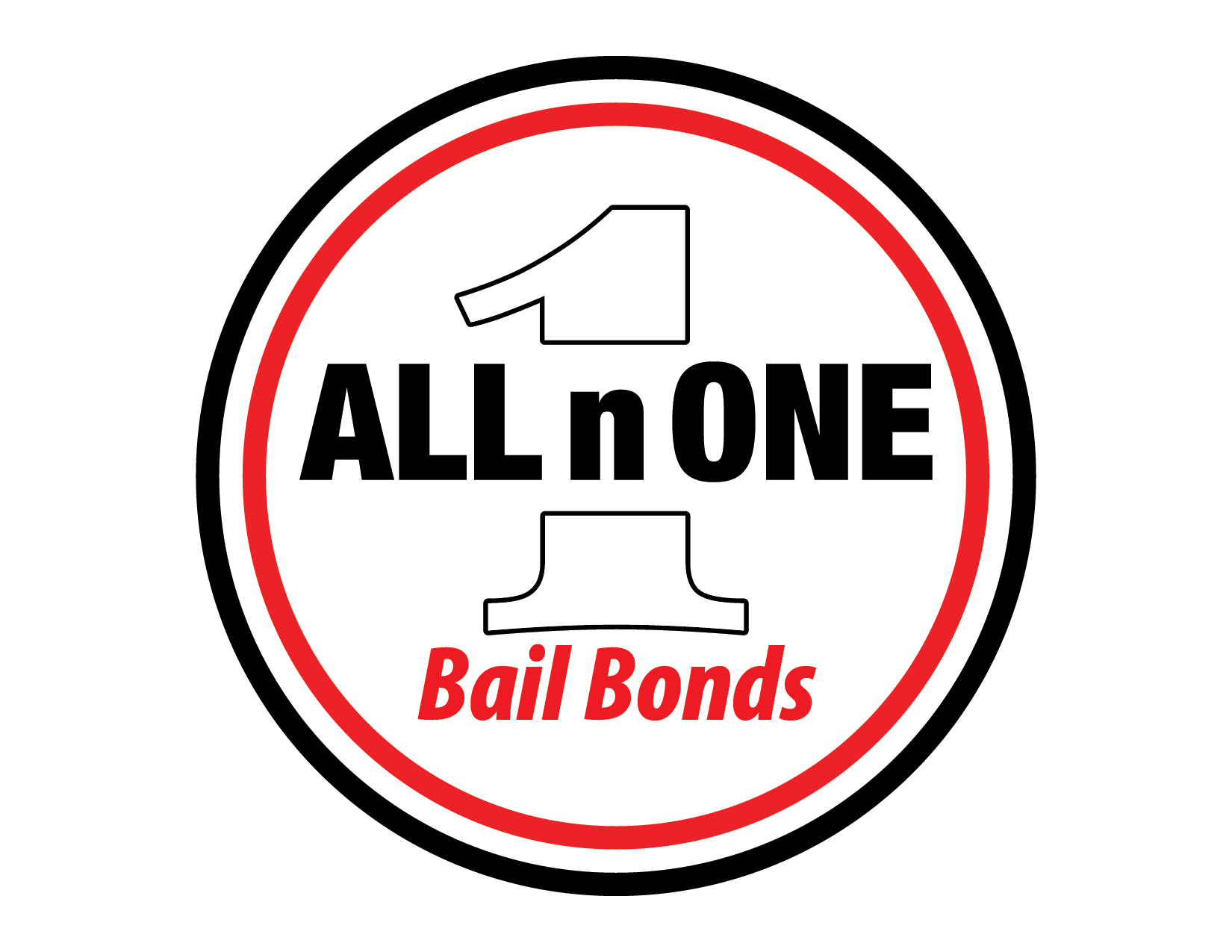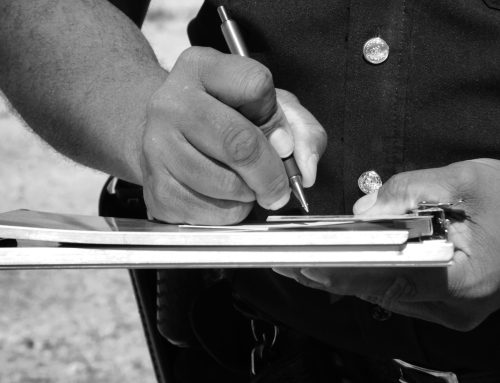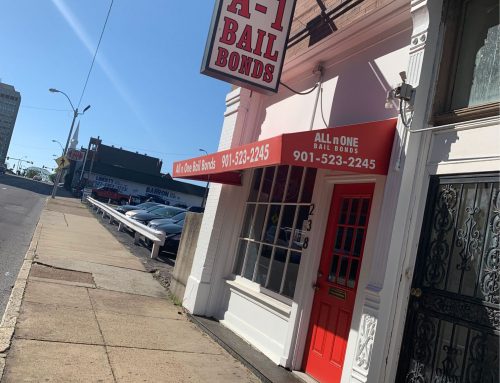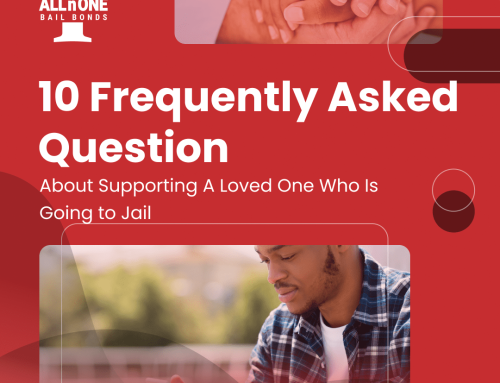In this article, we discuss the responsibilities defendants have while being out on bond in Memphis, TN. Understanding and fulfilling these ensures a smooth bail process because it helps you avoid potential complications.
At All-n-One Bail Bonds, we’ve helped many clients navigate the bail bond process, and the following information is based on our experience.
Let’s explore the responsibilities a person has when out on bond in Memphis, TN!
Out on bond in Memphis, TN – Common sense rules to follow
Here are some common sense rules that can keep defendants out of trouble when they’re out on bond in Memphis, TN:
- Don’t commit another crime.
- Don’t use illegal drugs.
- Don’t carry weapons illegally.
- Stay away from the victim (if applicable).
- Maintain employment or education.
- Respect curfew.
- Stay within the jurisdiction (if ordered by the court).
Side Note: Firearm Restrictions While Out on Bond
You might be wondering if you can possess a firearm while out on bond.
The answer is: If you are arrested for a domestic violence charge, you can typically carry a gun until convicted. However, the judge may impose certain bond conditions that restrict your ability to possess firearms. Please note that a Concealed Carry Weapon (CCW) permit is a privilege, not a right. The court can revoke your CCW permit, but they can’t take away your guns until you are convicted.
Ultimately, what the judge orders is the rule unless successfully challenged by your legal representation.
Key Responsibilities While Out On Bond in Memphis, TN
Once a defendant is out on bond in Memphis, TN, failing to meet certain responsibilities can lead to additional charges, bond forfeiture, or even re-arrest.
Here are the most common release conditions that should be followed while out on bond:
Not Committing New Crimes
It’s common sense, but defendants should never go out and commit more crimes when out on bond. Needless to say, this can cause major problems.
Our advice for defendants is to set goals and work towards them, find hobbies, seek help from professionals if necessary—whatever positive thing you can do to avoid repeating negative behavior is worth trying.
Attending All Court Appearances
Everyone knows that when you have a court case, you have to show up. Failing to do so can result in a loss of bond or additional charges. With that said, if you have a court date pending, we don’t want you to stress too much!
Just make sure you treat your court appearances as your top priority. Get there on time, dress nicely to make a good impression, and come prepared with your legal representation.
» MORE: What to wear as a court defendant
Complying with Travel Restrictions
When you’re released on bond, the court might restrict your travel plans. They might, for instance, say you can’t leave the county, or perhaps they’ll let you travel out of state as long as you get permission.
If you plan on traveling, just clear it with the court first. You don’t want to accidentally violate the terms of your release by hopping on a plane or taking a road trip without getting the green light.
Feel free to check with your bail bond agent or attorney if you have any questions about where you can travel while you’re out on bond.
Avoiding Certain Individuals and Places
When you’re out on bond, it’s also a smart idea to keep your distance from places or people that could potentially land you in trouble. That means staying away from gang hangouts, bars, and anyone involved in your case.
Our advice is to focus on keeping a low profile and doing everything you can to comply with the conditions of your release. Be discerning about who you’re associating with and where you go, and you’ll have a better experience with the court.
Adhering to Curfews
In Memphis, TN, the court might set a curfew as a condition of release. It’s a pretty common requirement.
If you, a friend, or a family member needs to adjust the curfew for work or other important purposes, the court may be open to changing it. In this case, let your attorney and the court know.
With that said, here are some common-sense ways to adhere to a court curfew:
- Set alarms to remind you when it’s time to head home.
- Plan your schedule around your curfew hours.
- Let friends and family know about your curfew to avoid temptation.
- If you’re running late, contact your attorney, bail agent, and the court to explain the situation and let them know what’s going on.
Complying with Protective Orders
In domestic violence cases or cases with similar offenses, the court might issue protective orders as part of the bond conditions.
In fact, in Tennessee, it’s pretty common to get a no-contact order, which is designed to protect victims and witnesses.
Here are some tips that can help defendants comply with protective orders:
- Thoroughly read and understand the terms of the protective order.
- Keep a copy of the protective order.
- Avoid any direct or indirect contact with the protected person(s).
- Steer clear of places where the protected person(s) live, work, or frequent.
- If you accidentally encounter the protected person(s), immediately leave the area.
- Do not send messages or gifts to the protected person(s) through friends or family.
- Attend all court-ordered classes or programs, such as anger management or substance abuse treatment.
- If you have any questions or concerns, speak with your legal representative.
Maintaining Regular Check-Ins
The court sometimes requires regular check-ins when defendants are out on bond in Memphis, TN. To stay punctual, we suggest keeping a calendar of all scheduled check-ins and setting reminders to avoid missing appointments.
Some good calendar and reminder apps include: Google Calendar, Microsoft Outlook Calendar, Any.do, and Fantastical.
Maintaining or Seeking Employment
It’s possible the courts in Memphis could require defendants to maintain employment while out on bond. Additionally, if the defendant is unemployed, they might be required to look for work.
This is actually a good sign, as it means the courts consider the defendant capable of contributing to society. Naturally, defendants will want to inform the court and bail bond agent of any changes in employment status.
Avoiding Illegal Drugs and Alcohol
Defendants with drug addiction may struggle if the court orders them to stay away from drugs and alcohol while out on bond. The good news is there are resources to help, from support groups to addiction treatment programs.
Defendants with drug issues don’t have to go through the process alone. Reaching out for assistance can make all the difference in staying sober and keeping bond conditions on track.
Maintaining Communication with Legal Representatives
Defendants should maintain regular contact with their bail bond agents and legal representatives, especially if issues arise, for example, a flat tire that causes them to miss a court date.
At the end of the day, both your legal representative and bail agent are on your side. So, don’t be shy about reaching out if something unexpected happens. They can work with you to resolve the issue and mitigate potential consequences.
Complying with Other Specific Conditions
In addition to the responsibilities outlined above, defendants have to adhere to any conditions set by the court. These may include:
- Participation in education classes
- Drug rehabilitation programs
- Community service
- Attending support group meetings
- Mental Health Treatment
Note: Getting involved in community service, showing up to support group meetings, or taking classes can go a long way in painting a more favorable picture for defendants.
Responsibilities of the Co-Signer (Indemnitor)
Now that we’ve talked about the responsibilities that come with being out on bond, let’s discuss the role of co-signers for a minute. If you’re thinking about co-signing a bail bond for someone, there are a few things to know before signing.
Financial Responsibility
The co-signer, also known as the indemnitor, has a big role to play. If something goes wrong with the defendant, let’s say they skip court and flee the state, the co-signer will likely be liable financially.
Essentially, the co-signer is vouching for the defendant and promising they’ll show up to court and follow all the rules. If the defendant fails to meet their obligations, the co-signer is financially responsible and will have to pay the entire bond amount.
This is something to think about before co-signing.
Helping the Defendant Stay Compliant
It’s in the co-signer’s best interest to ensure the defendant complies with all conditions of the bond.
This can include helping to manage court dates, providing transportation to and from court appearances, and ensuring that the defendant adheres to any other conditions set by the court.
Communication with the Bail Agent
The co-signer needs to keep in touch with the bail bond agent, especially if there are any worries about the defendant sticking to the rules or if the co-signer needs to back out for any reason.
This means:
- Providing contact info to the bail bond agent and updating them if anything changes.
- Responding promptly to calls, texts, or emails from the bail bond agent.
- Being proactive in communicating any issues or changes in the defendant’s situation, such as job loss, relocation, or health problems.
- Asking questions and seeking clarification if any aspects of the bail bond process or the defendant’s obligations are unclear.
- Notifying the bail bond agent immediately if the co-signer becomes aware of any violations of the defendant’s bond conditions or if the defendant fails to maintain contact.
Defendant Recovery Costs
If a bail enforcement agent is required to locate and return the defendant to court, the co-signer may be responsible for the additional costs. Recovery costs can be pretty steep, especially if the bail enforcement agent needs to dedicate significant time and resources to the search.
While bail enforcement agents typically charge a percentage of the bail amount as their fee, additional costs may be incurred for travel, accommodation, and other expenses.
This is why it’s good to know who you’re co-signing for and only sign for someone you trust.
Note About Co-signer Release of Obligation
The co-signer’s obligation typically ends once the defendant’s case is concluded, provided that all conditions are met and financial obligations are settled.
This means that the co-signer is no longer financially responsible for the bond once the case has been resolved, either through a trial, plea agreement, or dismissal of charges.
11 Frequently Asked Questions about Being Out on Bond in Memphis, TN
1. Can you leave Memphis, Tennessee on bond?
Possibly, but it all depends on what the court decides.
In some cases, defendants may be restricted to staying within Memphis, Shelby County, or Tennessee state limits.
2. How can I find information about my court dates while out on bond in Memphis, TN?
You can visit the Shelby County Criminal Justice System Portal to access case histories and hearing schedules.
If you are represented by an attorney, they can help. And if you’ve gotten a bail bond with All-n-One Bail Bonds, you can always contact us with questions or if you need help keeping your court date.
3. How often do you need to check in while out on bond in Memphis, TN?
It varies. Factors that influence the frequency of check-ins include the defendant’s perceived flight risk and the severity of the criminal charges.
Check-ins can be conducted through various methods, such as:
- In-person visits
- Phone calls
- Online check-in through a private software system
4. What happens if I am arrested while out on bond in Memphis, TN?
If you are arrested while out on bond in Memphis, TN, several consequences can occur:
- The new arrest can lead to the revocation of the current bond.
- Bail money paid may be forfeited.
- Securing another bond for new charges may be more difficult.
- Additional charges may be filed.
- A new arrest can negatively impact a case, affecting plea negotiations, sentencing, and the court’s perception.
5. What is a source hearing, and how does it relate to responsibilities while out on bond in Memphis, TN?
A source hearing is a legal proceeding for bonds set at $75,000 and above or over $10,000 in cash.
The point of a source hearing is to make sure the funds aren’t derived from criminal activity. This is why, during the hearing, the defendant or co-signer has to present financial records to prove that the funds are legitimate.
As it relates to source hearings, the responsibility defendants and co-signers have is to get their finances in order. If you or someone you know anticipates a high-value bond, it’s a good idea to be prepared for a source hearing and maintain accurate financial records.
6. What is the process for paying court costs while out on bond in Memphis, TN?
For criminal cases, payments for court costs, fines, and fees are handled through the Criminal Court Clerk’s Office (not the City Court Clerk).
There are two main ways you can make payments for court-related costs while out on bond in Memphis, TN:
One: In-person payment at the Criminal Court Clerk’s Office.
Two: Online payments, which are now accepted for cases with a case number that begins with a ‘C’ or by using indictment and booking numbers if the case number does not begin with a ‘C’. You can read more about this on Shelby County Criminal Court Clerk, Heidi Kuhn’s website.
If you are unable to pay the full amount at once, you may be able to set up a payment plan. According to the Shelby County Criminal Court Clerk’s Office’s website, to set up a payment plan for court costs, you can call the Escrow Department or go to the Criminal Court Clerk’s Office Escrow Department. See the linked page above for more information.
7. What are a defendant’s rights while out on bond?
While out on bond, a defendant’s rights in Memphis, TN, include:
Right to a Reasonable Bond: In Tennessee, defendants are entitled to a reasonable bond or bail, except in cases involving capital offenses where the evidence is strong or the presumption of guilt is significant.
Right to a Bond Review Hearing: Defendants have the right to request a bond review hearing, which is a legal proceeding that reevaluates the conditions of their bond or bail. This hearing takes place after the initial bond has been set. Bond review hearings are often held if there is new information that could impact the bond conditions.
Right to Bail: In Tennessee, bail is a constitutional right. If a defendant out on bail is arrested on new charges, their bond may be revoked, but they have the right to an evidentiary hearing regarding the revocation.
» MORE: What does revoking a bond mean?
Right to Legal Representation: Defendants have the right to be represented by an attorney during bond review hearings and other legal proceedings. Legal counsel can advocate for the defendant’s interests and argue for reasonable bail conditions.
Right to Be Informed: If a clerk sets bail and the defendant believes it is excessive, they have the right to petition the judge of the circuit or criminal court. The clerk is required to inform the defendant of this right.
8. How do you navigate the employment process while out on bond?
Telling a potential employer that you’re out on bond can be tough. It’s a vulnerable conversation to have, and it’s natural to worry about being judged or dismissed out of hand.
But many employers are willing to give people a chance if they’re qualified for the job, communicate honestly, and have a good work ethic.
Once a defendant finds work, they’ll need to keep their employer updated about ongoing obligations, like court dates or check-ins.
9. How do you handle unexpected situations that may arise while out on bond, such as job loss or medical emergencies?
Life is unpredictable, and unexpected situations can arise at any time. So, if you find yourself in a difficult situation, don’t panic. Just reach out to your legal representative, bail bond agent, and the court, and you can explain what’s going on. They will be able to offer guidance on what to do.
If you’ve lost your job, let your legal team know right away. They can work with you to adjust your bond conditions or find alternative ways to meet your financial obligations.
When facing a medical emergency, provide documentation to the court so they’re aware of your situation and can make accommodations as needed.
10. What is the role of technology, such as electronic monitoring and mobile apps, in ensuring compliance with bond conditions?
For the most up-to-date and accurate information regarding the use of technology in the bail bond process, contact All-n-One Bail Bonds.
We can give you pointers on the practices we’ve noticed the courts using, such as requiring defendants to check in regularly via phone. Things change from time to time.
However, always refer to official sources, as they will have the final say on what technologies are permitted and how they can be used to ensure compliance with bond conditions in Memphis, TN.
11. Should you stay off social media while out on bond?
Yes, it is strongly recommended that you stay off social media while out on bond. This is to protect you from posting anything that could potentially be used against you and negatively impact your case.
Here are a few key reasons why staying off social media during this time is crucial:
- Social media posts, including pictures, comments, and videos, are generally not private and may be discoverable by prosecutors who can use them as evidence to build their case against you.
- Even seemingly innocent posts unrelated to the case can be misconstrued or used to weaken your arguments in court.
- Authorities may also examine comments you made on someone else’s page or messages you sent to another person to gather information about your activities and whereabouts.
- Deleting social media posts can be considered destruction of evidence.
Responsibilities When Out On Bond in Memphis TN – Conclusion
The purpose of this post was to cover the main responsibilities defendants have when out on bond in Memphis, TN. These include attending court on time, complying with the conditions set by the court, and following common sense rules.
Need a bail bond or have questions? All-n-One Bail Bonds helps clients in Memphis, TN get out of jail quickly with bail bonds.
Our team is available 24/7 to guide you through the process and answer your questions. Contact All-n-One Bail Bonds for expert support while you navigate the bail bond process
Disclaimer: Tennessee may have more current or accurate information. We make no warranties or guarantees about the accuracy, completeness, or adequacy of the information contained in this post. Please refer to official sources. The information in this post is not a substitute for professional legal advice.





